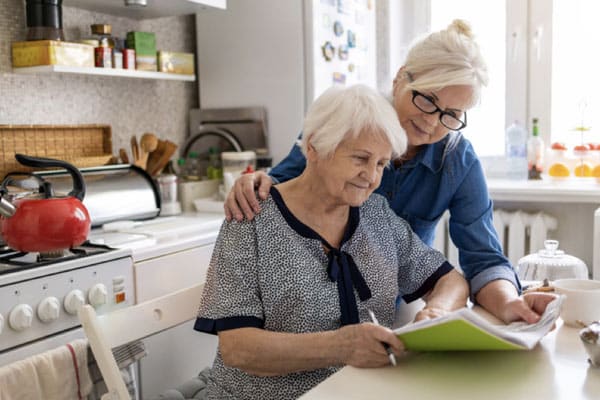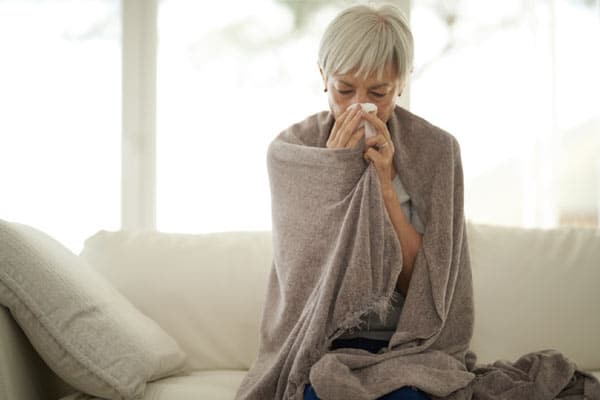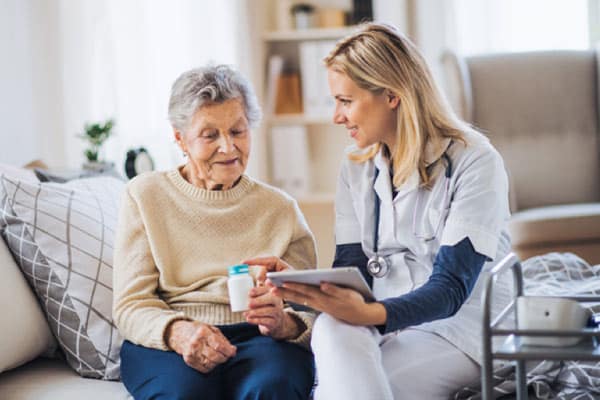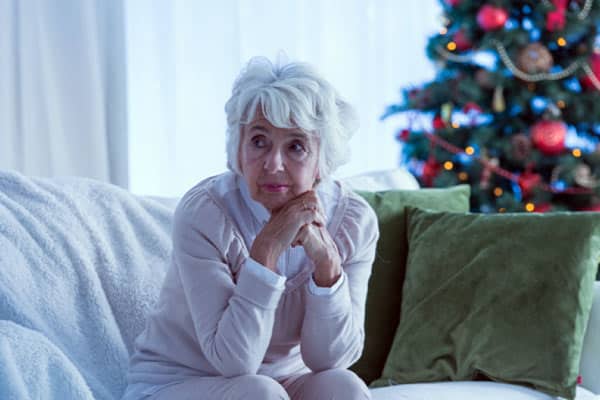February is American Heart Month and it’s the ideal time to check in to make sure you are giving your heart the love and care it needs all year long. Heart disease afflicts both men and women and it is estimated that as many as 20 million adults have coronary artery disease, the most common form of heart disease. Heart disease remains a leading cause of death in the United States. To help encourage healthy lifestyle choices that improve older adult heart health, the Florida care experts at American, Advocate and Whitsyms In-Home Care share the following tips:
Make Healthy Dietary Choices. If an older adult lives alone, it can be hard to have an inclination to cook, and frequently, older adults opt for fast foods and other foods that are quick to prepare. Unfortunately, many of these foods are high in sodium and fat, and aren’t well rounded nutritionally. Aim to include fresh fruits, vegetables, whole grains, and fiber with each meal. Read labels and work to reduce the amount of sodium, saturated fat, cholesterol and sugar in your diet. Include lean sources of protein in your diet such as white-fleshed fish, plain Greek yogurt, lentils, poultry, and low-fat cottage cheese. Protein helps build muscle. Strong muscles help improve mobility and balance for older adults.
Exercise (Almost) Daily. Aim to get a minimum of 30 minutes of light exercise at least five or six days each week. Take a walk around the block, walk at the mall, swim some laps at the gym, participate in an online yoga session, or do housework or gardening. Be creative -- there are lots of ways to achieve 30 minutes of exercise as part of a normal daily routine. It is also recommended that older adults include muscle-strengthening and balance exercises twice a week. These exercises will help decrease fall risk. Be sure to speak with the physician before beginning any exercise routine.
Schedule (and Keep) Regular Healthcare Appointments. Regular medical appointments are an important part of an older adult’s overall, long-term health. During an appointment, the physician will monitor blood pressure and other symptoms that may be an indication of heart disease. Staying on top of your health will help decrease the potential for preventable diseases and health conditions. If the doctor prescribes medications for high blood pressure, high cholesterol or any other chronic health condition, be sure to take each medication as prescribed.
Prioritize Good Sleep. Experts recommend that older adults should get between seven and nine hours of sleep per night. A full night’s sleep is beneficial for brain functionality, metabolism, immune health, emotional well-being, and for damaged cell and tissue repair. Practice good sleep hygiene: have a set time for going to bed and getting up; create a relaxing bedtime routine such as a warm bath or shower; turn off electronic devices; and limit caffeine intake. If an older adult is having difficulties falling asleep or staying asleep, his or her physician can offer tips to help.
Reduce Stress. Stress has been linked to cardiovascular disease and a variety of other health conditions. While it’s impossible to remove all incidents of stress from an older adult’s life, there are a number of healthy outlets that can help relieve stress. Activities that can help reduce stress include regular visits with family and friends, engaging in religious activities, volunteering, meditation, prayer, yoga, exercise, hobbies and more. Help an older loved one identify activities that they find enjoyable and help reduce stress, and then encourage regular participation.
Stop Smoking and/or Drinking Alcohol. If an older adult regularly smokes or drinks alcohol, provide encouragement for the person to quit. Alcohol and tobacco products have been linked to a number of chronic health conditions, including heart disease. If an older loved one needs assistance with reducing or eliminating alcohol or tobacco products, his or her physician can help.
What Are the Risk Factors for Heart Disease?
Making lifestyle changes, like those outlined above, is the first step in prioritizing older adult heart health. It is also important to know the risk factors for heart disease, which include:
- High blood pressure
- High cholesterol
- Smoking
- Diabetes
- Obesity
- Poor diet
- Inactive lifestyle
- Excessive caffeine consumption
- Excessive alcohol consumption
Warning Signs of a Heart Attack
In addition to lifestyle, a person’s age and family history can increase the risk for a heart attack. It is also estimated that as many as half of all Americans have at least one of the top three key risk factors for heart disease: high blood pressure, high cholesterol, and smoking. It’s critical to know the warning signs of a heart attack and to seek prompt medical attention if any of these are noted. Warning signs include:
- Pain or discomfort in the chest
- Lightheadedness, nausea, or vomiting
- Jaw, neck or back pain
- Discomfort or pain in arm or shoulder
- Shortness of breath
The most common symptom for a heart attack in both men and women is chest pain or discomfort. Women may experience other symptoms such as nausea/vomiting, shortness of breath, and jaw or back pain, which are not typically associated with a heart attack. If an older loved one is experiencing any of these symptoms, it’s important to call 911 immediately.
The referred care providers at American, Advocate and Whitsyms In-Home Care can help encourage healthy lifestyle habits in older adults that contribute to heart health in a variety of ways with expert in-home care services, including:
- Planning, shopping for, and preparing healthy, well balanced meals
- Providing transportation to medical appointments and social outings
- Encouragement for physician-approved exercise
- Friendly companionship and engaging conversation
- And much more!
To find out more about how an experienced and compassionate referred care provider can help an older adult you love prioritize heart health while maintaining independence in the comfort of home, contact the office nearest you:
- American In-Home Care – Serving North, Central, and West Coast of Florida
- Advocate In-Home Care – Serving Southeast and Southwest Florida
- Whitsyms In-Home Care – Serving Southeast and Southwest Florida
State of Florida License and Registration Numbers: 30211518, 30211651, 30211295, 30211390, 30210978, 30211293, 30211382, 30211504, 30211733, 30211535, 30211531, 30211710, 30211709, 30211045, 5661











